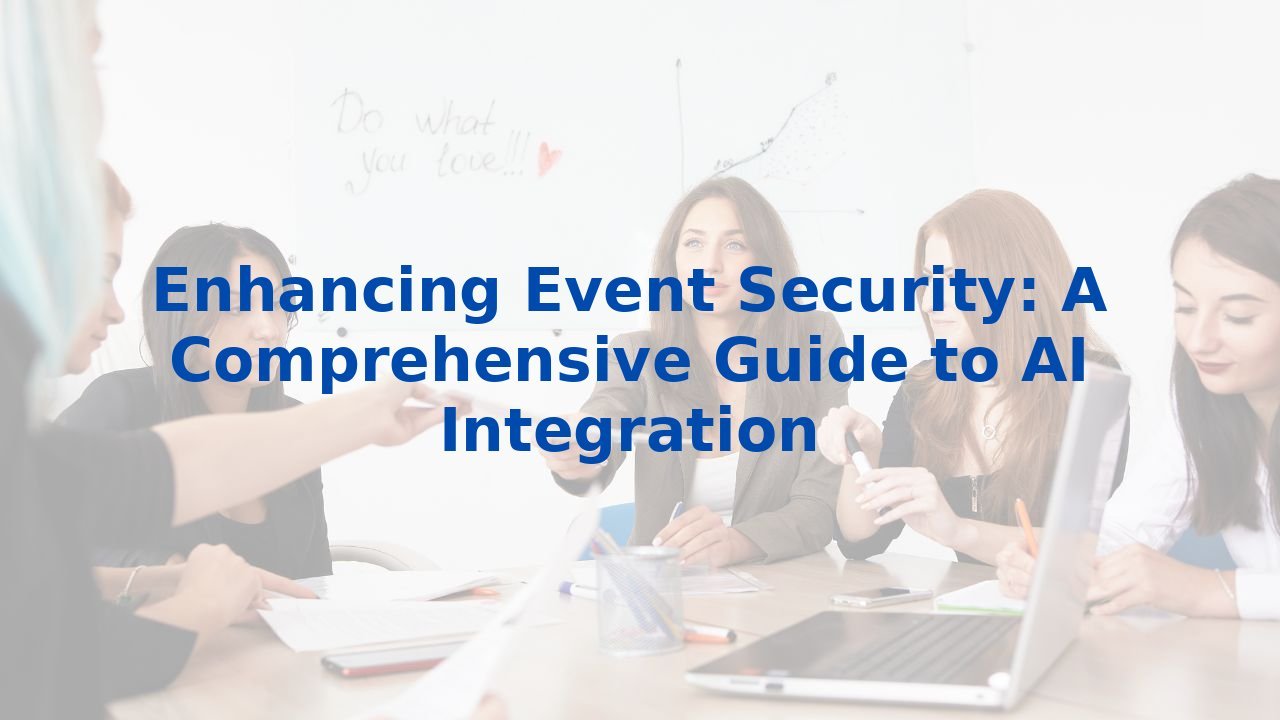Enhancing Event Security: A Comprehensive Guide to AI Integration
Enhancing Event Security: A Comprehensive Guide to AI Integration
In an era where events have become an integral part of our social and business fabric, ensuring security is paramount. The stakes are higher than ever for medium to large-scale gatherings, where safety protocols must effectively manage the myriad of potential risks. Enter artificial intelligence (AI), a transformative force that’s redefining how we approach event security. This guide will delve into the invaluable ways AI can optimize security measures while enhancing organizational efficiency.
The Role of AI in Event Security
AI isn’t just a technological trend; it's a strategy that enhances event security through robust data analysis and decision-making support. Let's explore the salient features of how AI is reshaping this critical area.
Real-Time Threat Detection
AI-powered systems each day analyze terabytes of data, identifying patterns and anomalies that would take human staff an eternity to decipher. From monitoring social media chatter for suspicious intent to analyzing crowd behaviors, AI elevates traditional security protocols by ensuring that threats are flagged before they escalate.
Predictive Analytics
Imagine the power of anticipating security breaches before they occur. With algorithms designed to analyze past data, AI helps in crafting preventative measures by identifying historical trends and potential vulnerabilities. This foresight is invaluable in the planning stages, allowing event organizers to address risks head-on.
Enhanced Surveillance
Surveillance is no longer a matter of only having eyes on the ground. AI-driven systems can manage extensive monitoring duties, skillfully detecting suspicious movements and flagging them for review. By employing intelligent tracking systems that accurately assess crowd behavior, organizations can maintain a vigilant security presence without overcrowding or overwhelming their guests.
Automated Response Systems
When moments count, a swift response can make all the difference. AI systems can automate emergency protocols, from alerting local authorities to mobilizing security teams effectively. Such seamless integration fosters a safer environment, ensuring that security can respond rapidly and efficiently without human hesitation.
Benefits of AI in Event Security
The integration of AI in event security offers a transformative impact, delivering benefits that extend beyond just safety.
Improved Efficiency
By automating routine tasks like monitoring and data analysis, AI frees human resources to focus on strategic areas of event management. This leads to streamlined operations, optimizing both time and effort.
Enhanced Accuracy
AI systems mitigate the potential for human error, delivering high levels of accuracy that translate to reliable operations. With reduced false alarms, security teams can prioritize critical issues and eliminate unnecessary disruptions.
Cost Savings
Automating day-to-day security tasks results in significant cost reduction. The reallocation of resources allows organizations to invest in other essentials, improving the overall event experience.
Better Decision-Making
Real-time data and sophisticated analytics provide event organizers with actionable insights. This data-driven approach not only fortifies security but allows for advanced planning, thus contributing to a more enjoyable experience for attendees.
Investing in Employee Training for AI
As powerful as AI is, human talent remains irreplaceable. Investing in training ensures seamless integration between employees and AI tools, equipping them to leverage these advancements into everyday workflows.
Understanding AI Capabilities
Employees need a solid grasp of what AI can and cannot do, helping them to formulate insightful queries and maximize the value of these advanced tools.
Evaluating AI Output
Training employees to critically analyze AI-generated data is vital. This involves assessing the reliability and accuracy of the information presented, enabling a more informed decision-making process.
Integrating AI into Daily Tasks
By familiarizing staff with using AI for tasks such as data analysis and reporting, organizations can optimize efficiency and productivity. Equipped employees will navigate challenges better, unearthing insights that drive effective event management.
Conclusion
The integration of AI in event security is transforming the landscape from mere reactive safety measures to proactive strategies that ensure a secure and enjoyable atmosphere for all. With real-time threat detection, predictive analytics, enhanced surveillance capabilities, and automated responses, AI stands as an essential partner in event management. When coupled with robust training for employees, organizations can harness these tools to create memorable experiences while safeguarding the well-being of all participants.
“In a world where change is the only constant, embracing AI not only fortifies security but also shapes a visionary approach toward holistic event management.”



